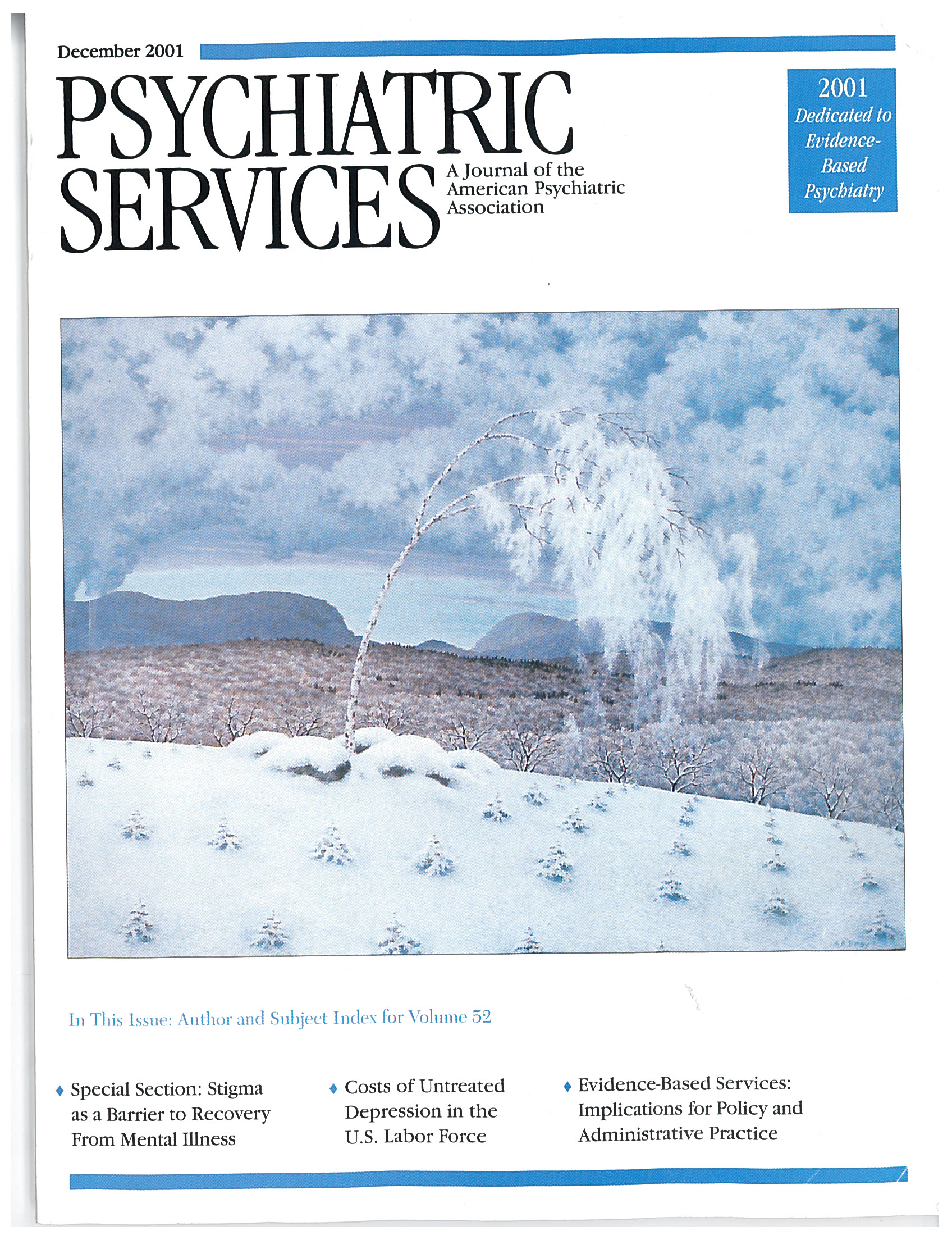Characteristics and Service Use Patterns of Nonelderly Medicare Beneficiaries With Schizophrenia
Abstract
OBJECTIVE: The authors sought to describe the characteristics of nonelderly Medicare beneficiaries who have a diagnosis of schizophrenia and to assess the impact of Medicare financing on service quality by comparing service use among individuals who were enrolled only in Medicare and those who were enrolled in both Medicare and Medicaid. The authors hypothesized that persons who received only Medicare benefits would use proportionally fewer psychosocial services and less antipsychotic medication than individuals who were dually enrolled. METHODS: Data were drawn from the Medicare Current Beneficiary Survey (MCBS). The study sample consisted of 257 individuals younger than age 65 who were included in the 1995 MCBS sample and who had one inpatient or two outpatient claims for schizophrenia between 1992 and 1996. The variables examined were demographic characteristics, comorbid psychiatric and substance use disorders, activities of daily living, instrumental activities of daily living, self-reported use of prescribed antipsychotic medication, and claims for psychosocial services. A multivariate analysis was also conducted to predict the use of antipsychotic medication from demographic and health status variables. RESULTS: Dually enrolled beneficiaries were significantly more likely to be receiving antipsychotic medication than Medicare-only beneficiaries, even when the analysis controlled for demographic characteristics, health status, and comorbidity. No significant differences were found in the use of psychosocial services. CONCLUSIONS: The findings were consistent with the hypothesis that Medicare financing, which restricts access to many mental health services, is not conducive to good community care for persons with schizophrenia.



